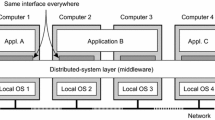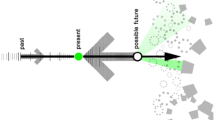Summary.
Reasoning about activities in a distributed computer system at the level of the knowledge of individuals and groups allows us to abstract away from many concrete details of the system we are considering. In this paper, we make use of two notions introduced in our recent book to facilitate designing and reasoning about systems in terms of knowledge. The first notion is that of a knowledge-based program. A knowledge-based program is a syntactic object: a program with tests for knowledge. The second notion is that of a context, which captures the setting in which a program is to be executed. In a given context, a standard program (one without tests for knowledge) is represented by (i.e., corresponds in a precise sense to) a unique system. A knowledge-based program, on the other hand, may be represented by no system, one system, or many systems. In this paper, we provide a sufficient condition for a knowledge-based program to be represented in a unique way in a given context. This condition applies to many cases of interest, and covers many of the knowledge-based programs considered in the literature. We also completely characterize the complexity of determining whether a given knowledge-based program has a unique representation, or any representation at all, in a given finite-state context.
Similar content being viewed by others
Author information
Authors and Affiliations
Additional information
Received: October 1995 / Accepted: February 1997
Rights and permissions
About this article
Cite this article
Fagin, R., Halpern, J., Moses, Y. et al. Knowledge-based programs. Distrib Comput 10, 199–225 (1997). https://doi.org/10.1007/s004460050038
Issue Date:
DOI: https://doi.org/10.1007/s004460050038




